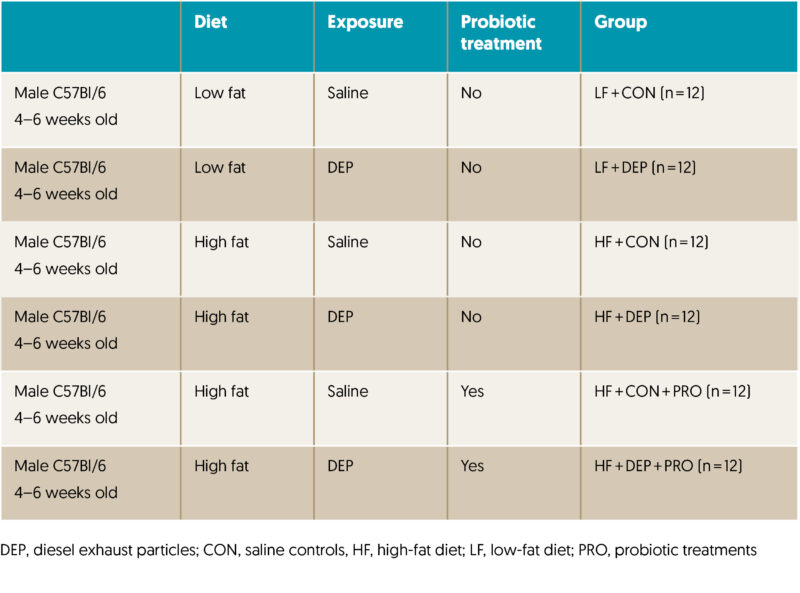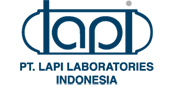Two new Ecologic® BARRIER publications


Hereby, we would like to inform you about two publications of the same study with Ecologic Barrier. The study investigated whether exposure to diesel exhaust particles (DEP) and diet (either alone or related to DEP exposure) alters the lung microbiota or the gut microbiota and promotes (microbial-related) inflammation in wild-type C57Bl/6 mice*. The study also investigated whether Ecologic® Barrier could ameliorate these effects.
In the study four-to-six week-old male C57Bl/6 mice were placed on either a control (LF) diet (n=24) or a high-fat (HF) diet (n=24). A separate set of mice (n = 24) were placed on the HF diet and treated with a dose of 0.3 g/day (~ 7.5 × 108 cfu/day) of Ecologic® Barrier. In addition, all mice were randomly assigned to be exposed via oropharyngeal aspiration to 35µg diesel exhaust particles (DEP, n=36) (DEP), or sterile saline only (CON) , twice a week for 4 weeks. This resulted in 6 treatment groups (see table 1).

The first publication (Daniel, et al. 2021) focused on the effect on the lung microbiota and inflammation. The results show that diesel exhaust particles (DEP) induce alterations in the commensal lung microbiome and cause persistent and sustained inflammation. The effects were worsened by a high fat diet. The effect of the high fat diet and the diesel exhaust particles on the lung microbiome and inflammatory responses could be diminished by the intake of Ecologic®Barrier.
The second publication (Philippi D, et al. 2022) focused on the effect on the gut microbiota, microbial-related inflammation and CVD biomarkers. The results show that inhaled DEP exposure alters gut microbial profiles, including reducing Actinobacteria and expanding Verrucomicrobia and Proteobacteria. Also increased circulating endotoxin, altered circulating cytokines, and CVD biomarkers were observed in DEP-exposed and/or HF diet-fed mice. This suggests that exposure to inhaled environmental air pollutants causes systemic inflammation, increased risk of cardiovascular disease, and alterations in the gut microbiome and high fat diet seems to be a contributing factor. These effects could be mitigated/diminished by the intake of Ecologic®Barrier.
*As you know, recently, we’ve been in possession of the much coveted B Corp certificate, which means we continuously strive for a healthy society, a healthy economy and a healthy planet. Amongst others, this means that we strive for animal-free research and are committed to developing and implementing non-animal methods where possible.
Interesting updates in your mailbox
Subscribe to our newsletter and receive the latest news about Winclove, probiotic-related research & publications, relevant market developments and inspiring articles.








